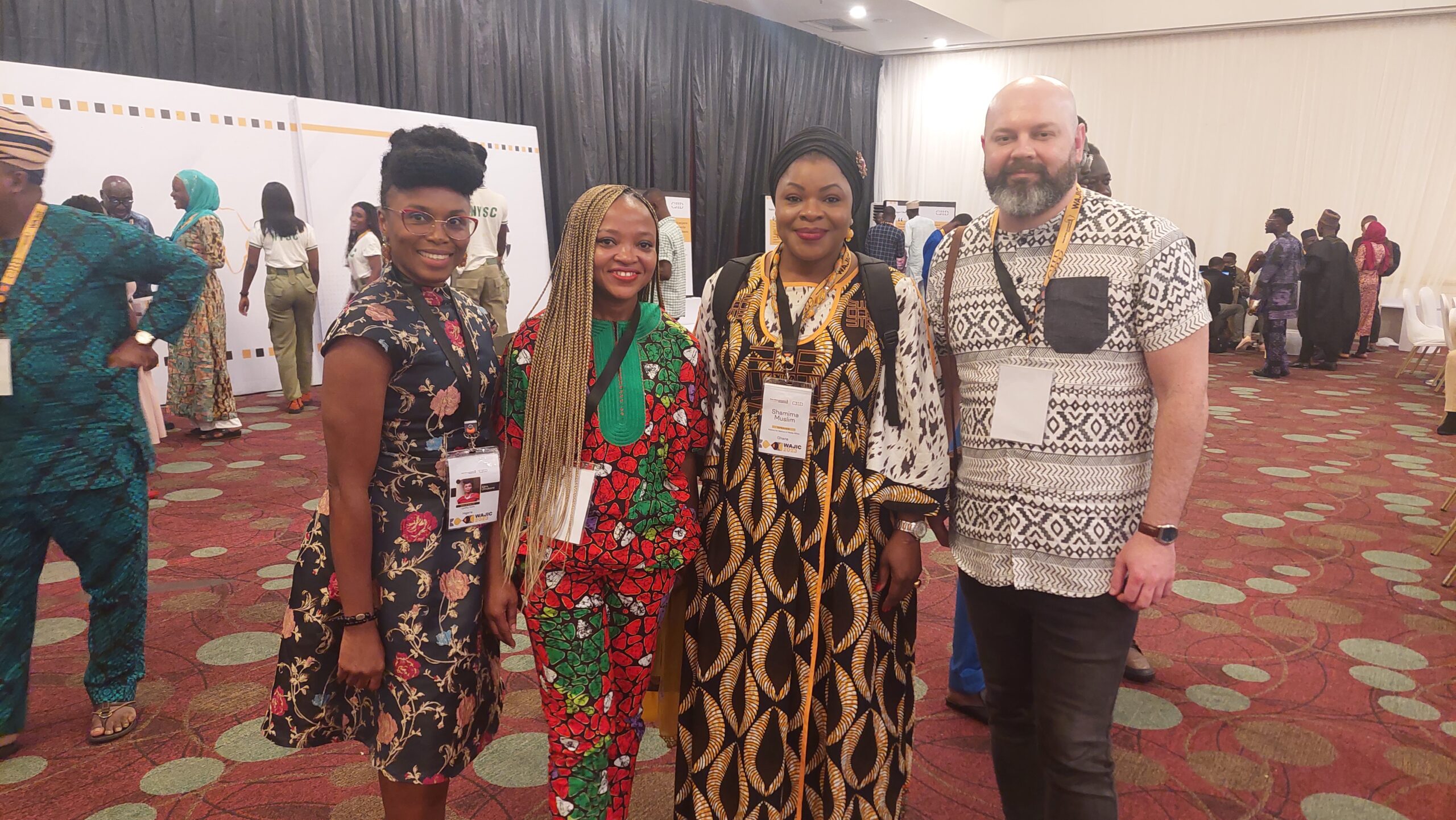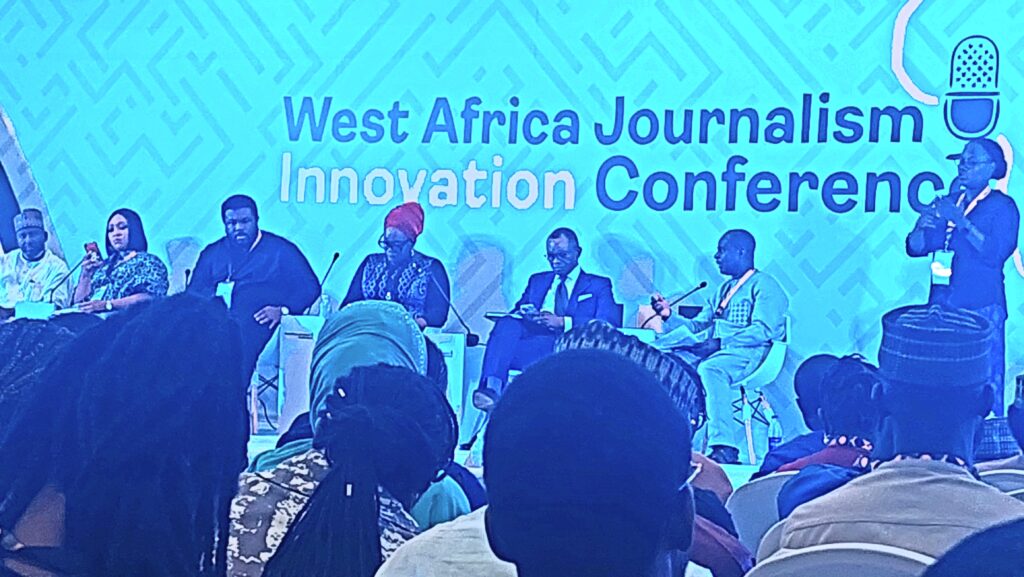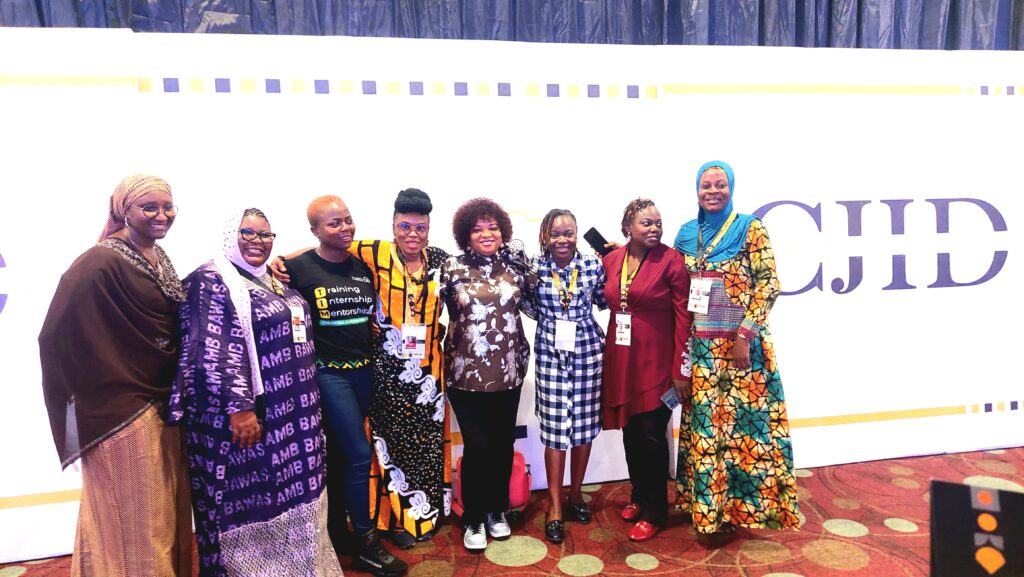CJID Hosts First West Africa Journalism Innovation Conference
Editorial Thrust by Lady Ejiro Umukoro.
As audiences evolve and adapt to what, why, and how they consume news, this raises the bar for journalists on the need to adopt a new style of reportage: constructive journalism. Research shows people want fresh social stories. Not only gloom and doom.
As such, the lingering emotions a reader should have after reading a news article or investigative report should not be pity. They are not victims but people with complicated lives.
This therefore requires that journalists amd media owners constantly seek stories about hero’s, survival, a vigilante who came to the rescue, what state authorities are doing to prevent reoccurrence, survival mechanism adopted, how they are rehabilitating themselves, and much more. Readers want to consume stories like these, too.*
GENDER ANGLE:
While 92% of men and 8% of women are reported on by journalists and the media, yet more than 40% of those affected as victims, persons displaced, etc., are women.
This implies there aren’t a lot of women reporting on conflicts as it is often seen, assumed, or considered not safe and easy for women. Editors, thus, influence how voices of women are reported by when they prevent female journalists from covering these. Conservatism in the newsroom is now a barrier on open mindedness that needs to be removed.
It has now become imperative, therefore, that the media and journalists alike must become deliberate and intentional in including women voices in report for equal representation.
By Deborah Omoare
Accountability journalism, promoting collaboration and aiming for innovation in the field of journalism were the key thematic focus at the first ever West African Conference put together by the Centre for Journalism Innovation and Development (CJID).
The conference which brought together media practitioners, technology professionals and other relevant stakeholders across West Africa was held at the Abuja Continental Hotel in the city of Abuja, Nigeria on the 25th and 26th of July, 2023, with the theme “Accountability Journalism: Nurturing Innovation for a Sustainable Future.”
Richard Gingras, the Vice President of News at Google gave the keynote address at the conference and other speakers like Dapo Olorunyomi who is the Publisher at Premium Times, Ms Shamima Muslim the founder and convenor of the Alliance for Women in Media Africa (AWMA), Dr Kole Shettima, Director, MacArthur Foundation, Toun Okewale Sonaiya, CEO, Women Radio and others had panels of discussion around different topics.

The Future of Journalism Education, Artificial Intelligence, Digital Technology and Journalism Interface, Accountability Journalism, Media and Democracy, Issues of Representation and Inclusion, Exploring Funding and Sustainability Models for Newsrooms and other topics were discussed by the panellists at the conference.
In the course of the discussion on Journalism and Education, Idris Akinbajo, Managing Editor, of Premium Times, identified that there is a need for collaboration between lecturers in higher institutions and practitioners in the field for the students to get equipped with both the theoretical knowledge and the real practicals of journalism in the 21st century. He expanded that media sustainability, investigative journalism, and data journalism need to be taught in various universities across West Africa.
Audrey Gadzekpo,
Professor of Communications, University of Ghana emphasised that poverty should not be an excuse for unethical practices in journalism, stating that journalism needs to be independent of influence.
The Head of Commercials, News Central Television, Rosemary Egabor-Afolahan believes that media investors who understand the media and also believe in accountability journalism are needed for the sustainability of the industry.
Frank Aigbogun, Publisher, BusinessDay stressed that accountability journalism cannot thrive on its own if journalism is not thriving. “We need good management, good business modems, good professionals managing the organisation. Let us be responsible in what we do, the way journalism is channelled today, I believe more so for accountability journalism”, he added.

David Adeleke, Africa Editor, Rest of World concludes that Artificial Intelligence tools will compel journalists to be better and more productive in their profession, just the way computers and phones help people to be more productive, adding that journalists need to improve themselves by learning new skills.
Reactions from Attendees
In his reaction, a delegate at the conference who works at Dubawa, Phillip Anjorin, said: “The conference exceeded my expectations because each panel session I attended impacted my views and made me think better about what innovation in journalism entails.
“Aside from learning that data is crucial in storytelling because it reveals details that may not be better explained using other formats, I also learnt the value of using and adapting to what generative AI brings my way as a journalist. I’m now equipped with the truth that AI is not coming to snatch my job, but the people who use AI can snatch my job if I don’t evolve as a journalist who moves with what the present age demands.”
He further disclosed that a mystery that was unveiled to him after attending the conference is that there is always room for more development as individuals and as a team, geared towards building a great future in the African media world.
Folarin Jamiu, a delegate at the conference said: “What an incredible experience! The West Africa Journalism Innovation Conference was truly a privilege, offering outstanding intellectual stimulation and fantastic networking opportunities. It provided an exceptional platform to address the challenges faced by the media industry and explore its promising future.”

Asishana Justina, a delegate at the conference, said: “The West Africa Journalism Innovation Conference was an enlightening and impactful conference. My key takeaway is that journalists need to innovate or they perish. This was the mantra said over and over during the conference with several discussions around innovation, technology, AI and digital media.”
The Executive Director and Publisher of LightRay Media, Lady Umukoro Ejiro commended the Centre for Journalism Innovation and Development (CJID) for creating a collaborative platform that gave a unique opportunity for many Nigerian journalists unable to travel to other global conferences the chance to meet with global media practioners and award winning journalists, such as Nataliya Gumenyuk, who brought the Ukraine war closer home to Nigerians as she explored how she used a different storytelling technique to report on war, crisis and human rights abuses that inspires action without losing our humanity while reporting about such events.





Comments